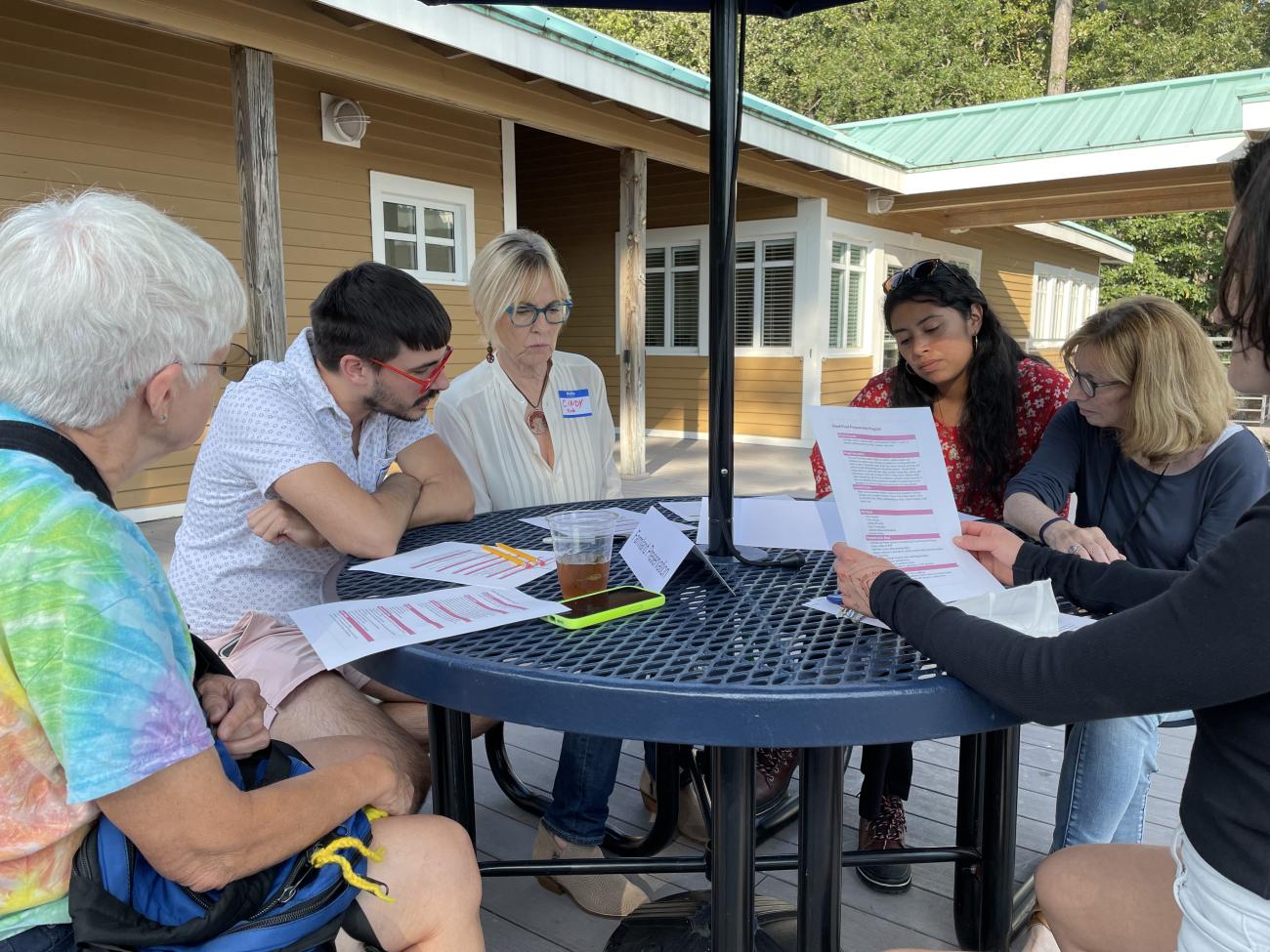Wake County Food Security Planning
2023 Wake County Food Plan Update
Moving Beyond Hunger: Creating a Resilient & Equitable Food System
In June 2022, Wake County Cooperative Extension initiated the revision of the 2018 Wake County Comprehensive Food Security Plan. The objective was to pinpoint strategic investment opportunities that could enhance both the quality and quantity of available food for individuals experiencing food insecurity throughout the county.
The primary goal is to fortify our food system by introducing redundancy and fostering stronger connections among our emergency and local food system partners and networks. The outlined strategies in this plan aim to shift our existing food security model from one centered on food charity to a more resilient approach.
The 2023 updates have emerged from the collaborative efforts of an equity-focused steering committee, partner-organization workgroups, and research-driven analysis of comparable models. The steering committee comprised community members with firsthand experience of poverty and/or influential advocacy roles in their community, alongside practitioners actively engaged in various food system capacities.
2018 Wake County Food Security Plan
Moving Beyond Hunger: Five Strategies and Supporting Actions
In 2015, the Wake County Board of Commissioners, with guidance from the Wake County Food Security Working Group, funded the creation of a food security plan to outline recommendations on policy, partnerships, and activities to establish a pathway to comprehensive food security in Wake County. Since its adoption in 2017, the Plan has been integrated into the Capital Area Food Network's Food Access Circle as well as local municipalities.
Tailored Solutions: Meeting Needs Across Generations

In the diverse community of Wake County, different age groups face distinct challenges when it comes to food security. From addressing the critical needs of hungry youth, to supporting college students managing academic demands and basic necessities, and recognizing the often-overlooked issue of senior hunger – our community members encounter a range of food-related obstacles at different stages of life. Our goal is to contribute to a more comprehensive and tailored approach, ensuring food security for everyone in our community.
Youth Hunger
As of 2021 in Wake County, 14% of children under 18 were food insecure. Sufficient nutrition is necessary for a child's success, as hunger can impact a child's development well into adulthood.
During the summer months, the Summer Food Service Program provides daily lunch for children 18 and under.
Youth Food Security Summit
The annual Youth Food Security Summit is hosted by Wake County Cooperative Extension and supported by several food system leaders in the community. High school participants gain an understanding of food systems, connect with other youth performing food security work in Wake County, and share their voices through meaningful engagement opportunities.
Teen Recipe Book
The recipes in this book were put together by the CAFN Youth Circle as well as nutritionists from Poe Health Center. Not only does it provide healthy, easy and delicious recipes that anyone can make, but it also provides helpful resources such as food pantry locations, insights on how to plan a menu, grocery shopping tips, SNAP tips, seasonal produce guides and so much more.
College Hunger
Wake County is home to six universities. Many students struggle to get help because they are unsure of where to look. Often students are facing more than one issue, for example many foods insecure student also struggle to find affordable housing.
HOST Program: Housing Options for Students Today
Student Resource Guide: A compiled list of resources for any student experiencing insecurity.
Food Assistance Webinar for College Students: Navigate the world of food assistance! Includes Q&A session with NC State's More in My Basket, a student support program connecting North Carolina residents to the Supplemental Nutrition Assistance Program (SNAP).
Drafted Syllabus Addition for Wake County Professors
It is difficult to be successful as a student when basic needs are not being met. As a student you should have a safe place to sleep as well as nutritious food. If you feel your performance is being affected by either of theses factors, please reach out to me, _________________, and/or the student services provided at _________________________. Please check out the Wake County Student Resource Guide for more resources or information.
Senior Hunger
In the past decade alone, according to Meals on Wheels, people aged 55 and older have made up over 45% of the county’s overall population growth. At the same time, Feeding America reports that, the Raleigh metropolitan area had the second highest level of senior food insecurity in the country in 2020.
Resources for Seniors – Serving Wake County
919-713-1556
Offers a diverse list of assistance options for Wake County seniors and adults with disabilities. The resource listings fall into several categories, including food, recreation, healthcare, and home improvement.
Commodity Supplemental Food Program
Commodity Supplemental Food Program (CSFP) provides eligible seniors with a monthly package of food to help meet their nutritional needs. Packages are distributed by approved local agencies across the county.
Meals on Wheels
Delivery of a hot meal (typically lunchtime) and a friendly check-in at a senior’s residence.
Meals on Wheels Wake Friendship Cafes
Nine locations across Wake County offer seniors a hot meal and an opportunity to socialize.
North Carolina Seniors Farmers' Market Nutrition Program
Provides eligible seniors with benefits to purchase fresh fruits and vegetables at area farmers’ markets.
Inter-Faith Food Shuttle
919-250-0043
Offers a variety of food-related resources, from healthy cooking and nutrition classes and gardening assistance to mobile markets and a “Grocery Bags for Seniors” program that delivers monthly packages to designated low-income consolidated living communities in and around Wake County.
Resources to Share
June is National Hunger Awareness Month

Hunger Awareness Month is a global acknowledgement that hunger is prevalent in our communities. Wake County Food Security and partners collaborate in efforts to reduce hunger and educate our community throughout the month of June each year!





